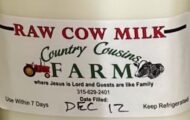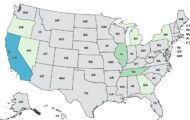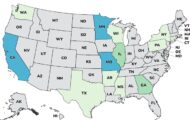In the world of food safety, many dangerous pathogens are controlled through HACCP plans, regulation, and inspections by the FDA and USDA. Of course pathogens are ubiquitous in the world. But food should not be sold to the public that is so contaminated with pathogenic bacteria that it makes people sick. At this time, just a few bacteria are considered "adulterants" in food. That means companies are not allowed to sell certain types of food that contain these bacteria. Those are E. coli O157:H7 and the other Big Six STEC bacteria; Listeria monocytogenes in ready-to-eat foods, and Salmonella in ready-to-eat foods. Salmonella in all other foods? Not an adulterant. Salmonella outbreaks have become common in this country. In the latest outbreak involving Foster Farms chicken, the … [Read more...]
Food Processors, Food Safety, the Law, and Common Sense
After the announcement of the Foster Farms raw chicken Salmonella outbreak, we realized there is a lot of misinformation out there about what contamination of food by pathogenic bacteria really means, both physically and legally. Reading comments on some other news stories really brought this point home. Most people do not understand why food safety experts and the law stress that food processors must produce safe food. The law states that companies are not allowed to sell food contaminated with enough bacteria to make someone sick. In addition, there is zero tolerance for several bacteria in certain foods: E. coli O157:H7 in beef; Listeria monocytogenes in ready-to-eat foods, and Salmonella in ready-to-eat foods. The government has also classified six other STEC (shiga toxin-producing … [Read more...]
Food Safety Bloopers, Snack Mix Edition
Oh, Rachael Ray. You may remember our disapproval at her The Book of Burger, in which she calls for cooking ground beef hamburgers to rare or medium-rare. The USDA states that it is not safe to eat any ground meat unless it's cooked to well-done. Her burger recipes in her magazine still say to cook them to medium-rare. In the November issue of her magazine, Everyday with Rachael Ray, she gives recipes for snack mixes. One of those recipes calls for mixing cooked bacon with nuts and other goodies, drizzling with honey, then baking. Fine so far. But then there are no instructions to keep the mix refrigerated, or to refrigerate it after it's been at room temperature. Because any cooked meat must be refrigerated after two hours or pathogenic bacteria may grow. The only cooked bacon that … [Read more...]
Food Safety Bloopers Volume 4
The current issue of Ladies Home Journal is the focus of this week's Food Safety Bloopers. One of their articles suggests that for gift giving, we donate to a charity in someone's name, then give that person a homemade gift. That is a wonderful idea. But there's a problem with one of the gifts described. The magazine gives directions for making rosemary-flavored oil, by putting rosemary sprigs in oil in a pretty bottle. This is an extremely dangerous practice, as herbs can carry Clostridium botulinum spores from the soil in which they are grown. Oil is the perfect anaerobic environment for the spores to grow and produce botulism poison. A tiny amount of that poison, which is odorless and tasteless, can paralyze and kill. The Colorado State University Extension states that for safety … [Read more...]
Food Safety Bloopers: Thanksgiving
Rachael Ray's magazine is again the focus of Food Safety Bloopers. Her food editor Terry Singh is in a video showing people how to prepare a turkey for Thanksgiving. Incorrectly. While Ms. Ray's magazine and her books continue to promote cooking burgers to rare and medium rare, against USDA advice, this is another blooper. First of all, while Ms. Singh correctly says that frozen turkeys must be thawed for days, she does not specify that the thawing must take place in the refrigerator. Since the turkey is sitting on the counter, some consumers may make that mistake and thaw the turkey at room temperature. Ms. Singh prepares the bird by rinsing it in the kitchen sink. Food Poisoning Bulletin has warned consumers about this mistake before, since pathogenic bacteria can spread up to … [Read more...]
Individuals and Companies Should be Prosecuted for Foodborne Outbreaks
As one of the few food safety lawyers in America, I’m often asked whether I believe that America’s food supply is the safest in the world. The short answer is: “I have no idea” – and if you’re one of the thousands of Americans sickened each year by foodborne illness, it’s no comfort knowing that some countries have food less safe than the product that shut down your kidneys or killed your loved one. The real questions about food safety have nothing to do with overweening national pride. In fact, there are only two questions that make any sense at all: “Can our food system be safer?” and “What steps have to be taken to make it so?” Since no one honestly doubts that our food safety system can and should be better, let me focus on answering the second question (based on what I’ve … [Read more...]








